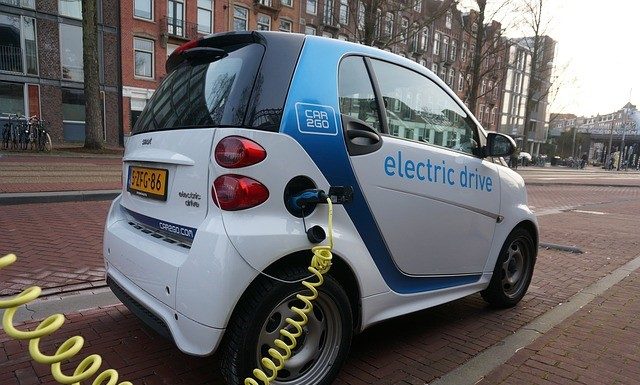The global pandemic shook the automotive industry, much like any other industry. But even before the pandemic hit, electric vehicles were slowly moving into the spotlight. The number of sales in the passenger car market in 2020 dropped by 14%. In contrast, global sales for electric vehicles increased by 39% year on year to reach 3.1 million units last year. According to research firm Canalys, electric vehicles may account for half of all passenger cars sold globally by 2030. Stocks for Tesla, the electric vehicle company owned by Elon Musk, has recorded a return of 300% in the last twelve months.
The electric vehicle market is revving up
Despite the automotive industry going through a slump in 2020, the increase in demand for electric vehicles has been a bright spot. The trend is expected to continue in 2021, and industry experts believe this decade may be the decade of the electric vehicle. According to Canalys, electric vehicles may account for 7% of all new car sales globally in 2021.
Many original equipment manufacturers have invested billions in delivering new electrified models, from research and development to factory redesign. 2021 may also see many new and old automobile manufacturers launch much-awaited electronic vehicles.
The Mercedez Benz EQC, Nissan Ariya, Volvo Polestar 2, Lucid Air, GMC Hummer EV SUT, Mustang Mach-E, BMW iX3, and Audi e-Tron GT are all expected to come out this year. There are several electric vehicle charging and electric vehicle battery stocks that one may consider investing in the US stock market.
The recent pandemic has also made one more thing clear, and that is the potential of autonomous vehicles.
What is an autonomous vehicle?
An autonomous vehicle is one that can sense its environment and operate without human intervention. By definition, an autonomous car does not require a human to take control of the car at any given time, nor is a human passenger required to be present in the car. It also can go anywhere that a conventional car can go and do everything that an experienced human driver can do.
The Society of Automotive Engineers defines six levels of driving automation. Level 0, the first level, is manual control, where all driving tasks are performed by a human. Level 5, the highest level, is when the vehicle does all driving tasks with no human attention or interaction.
Self-driving cars may fall under Level 3, where the car may do almost all driving tasks, but some human intervention may be needed. Some may even fall under Level 4, where the vehicle performs all driving tasks under specific circumstances, but a human override is an available option.
Future of self-driving and autonomous vehicles
Self-driving and autonomous vehicles may not be as big a priority for automakers in 2021 as compared to electric vehicles. Even though it is not a key area of focus at the moment, self-driving and autonomous vehicles continue to be a hot topic.
As the world slowly recovers from the global pandemic, the creation of jobs and solid cash flow is needed for economies to recover. Electric vehicles offer that opportunity, and so the focus may remain on them for this year and sometime in the future too. In the interim, tech giants like Microsoft, Google, and Apple are expected to continue working on autonomous vehicles. Since it already has an EV platform, Tesla looks all set to lead the charge.
Nissan had announced that it planned to introduce fully autonomous cars in the market by 2022. The Japanese automaker plans to add autonomous driving functions incrementally. Nissan is competing with new entrants to the automobile industry like Google's Waymo and bigger rivals like General Motors Co. and Tesla Inc.
Investing in the electrical vehicle industry
Environmental consciousness has been a major investing trend in recent times, and it has been further accelerated by the global pandemic. A growing number of investors are making socially responsible investing a priority when shaping their investment portfolio. Consumers worldwide are looking to buy vehicles that are more respectful of the environment, and electric vehicles fulfil that criterion.
Electric vehicle stocks are hot, and a large number of investors have come to recognize the major shift in the industry. Electric vehicles are better for the environment, are more efficient, deliver better performance, and cost lesser to maintain. No surprises then, that more and more people are becoming inclined towards investing in electrical vehicle stocks.
With the manufacturing of electric vehicles becoming more mainstream, their cost has also been gradually decreasing. Even though electrical vehicle stocks are in high demand, investors must ensure to keep the risks and challenges in mind before investing in them. These stocks have record valuations, which may make some investors think they are in a bubble.











